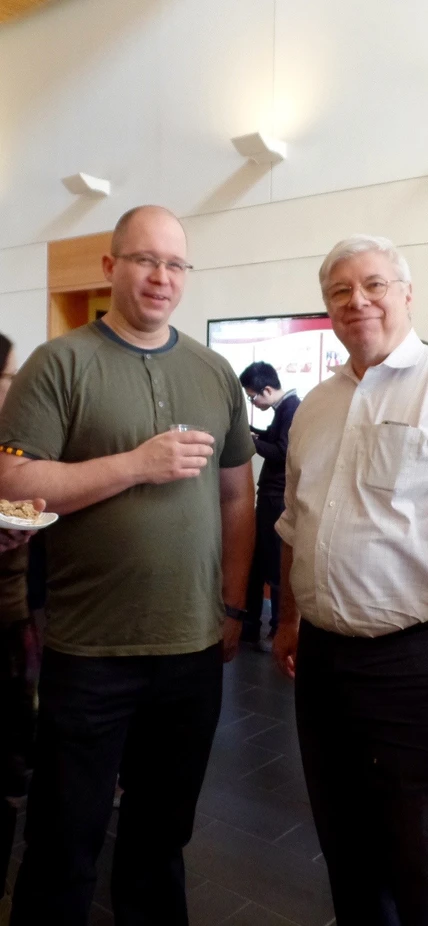Washington, D.C.—Matthew Sieber, a postdoctoral fellow at the Department of Embryology, has been honored for his extraordinary accomplishments, through a new program that recognizes exceptional Carnegie postdoctoral scholars who have demonstrated both scientific accomplishments and creative endeavors beyond what is expected.
Nominations for the Postdoctoral Innovation and Excellence (PIE) Awards are made through the department directors, and the award recipient is chosen by the Office of the President. Under the program, one postdoc is honored every quarter for their extraordinary accomplishments. The award recipient is given a prize of $1000, and is the guest of honor at a departmental gathering where all postdocs can enjoy some celebratory pies.
Sieber is recognized as “a creative researcher, interactive colleague, and selfless mentor” in the Department of Embryology. Through his research, he has made substantial connections between metabolism and reproduction, an area that previously lacked serious progress.
Sieber’s results have exciting implications for both basic research and medicine. He exemplified the Carnegie style of science by taking an unconventional path. “He combined the genetic methods and biological background of the Spradling lab with his pre-existing expertise in metabolomics and mass spectroscopy to discover how Drosophila eggs store nutrients and become quiescent,” remarked Allan Spradling, department director. His work shows that mitochondria, an energy-producing cellular organelle, are far more dynamic and responsive to external signals than expected. The finding likely applies to a broad spectrum of animals.
Seiber, Spradling, and Michael Thomsen, also of Carnegie, have a paper out today in Cell that uses the fruit fly to dissect the links between metabolism and egg development. The team believes their findings are directly applicable to understanding polycystic ovary syndrome-caused human infertility.
Sieber also demonstrates a strong engagement with his department, offering incisive questions at seminars that span a wide range of fields and demonstrating a strong command of both published and unpublished work. His keen interest in and understanding of his colleagues’ work has reinforced his reputation as an outstanding mentor in both formal and informal settings. Several rotation students have enjoyed productive lab periods under his supervision, and many graduate students and postdocs seek his advice. His high level of interaction with colleagues is further evidenced by the growing number of people from diverse labs who cite him in their acknowledgment slides in departmental progress report talks.
Carnegie president Matt Scott remarked, “I’ve enjoyed getting to know Matt during my visits to our Embryology Department. Embryology has a distinguished history of mentorship, with many of its graduating scientists having had profound effects on science, education, and policy around the world. Matt is exactly the kind of scientist Andrew Carnegie had in mind to support, and he has an excellent first name. I am confident that Matt’s creativity and spirit will lead to continued success in science and expect he will be a fine mentor for his future advisees.”
